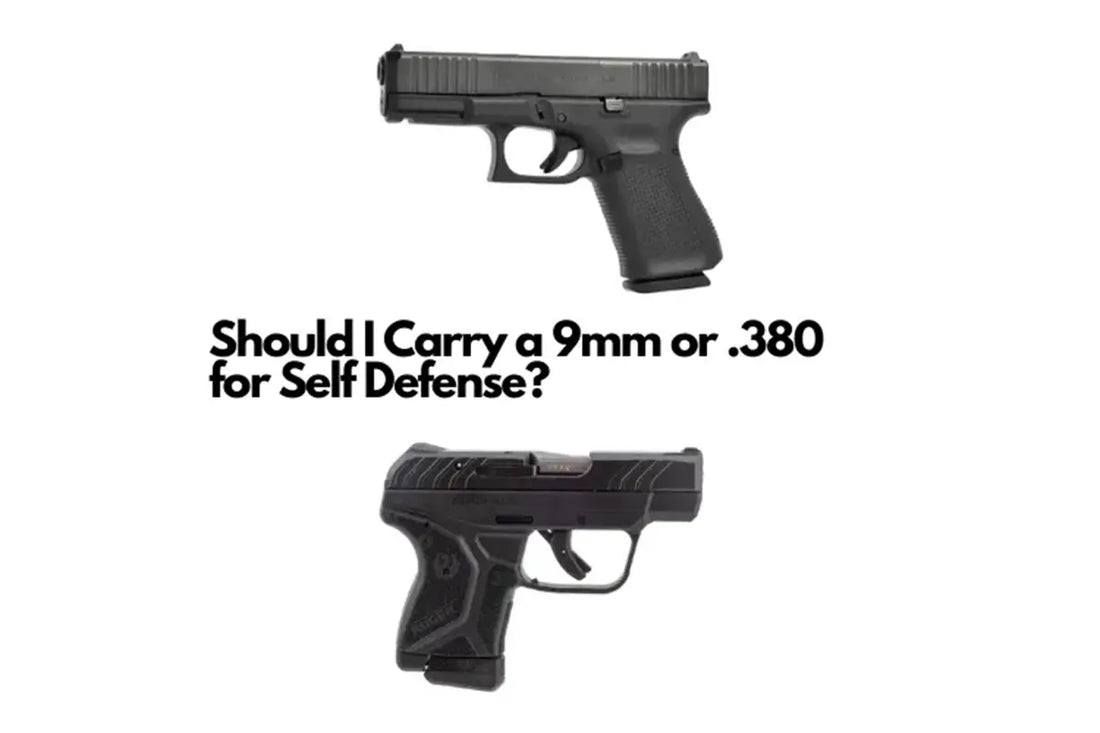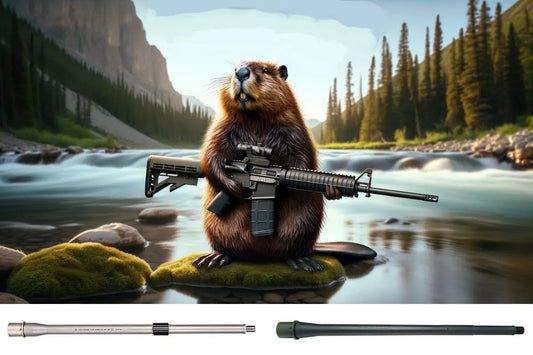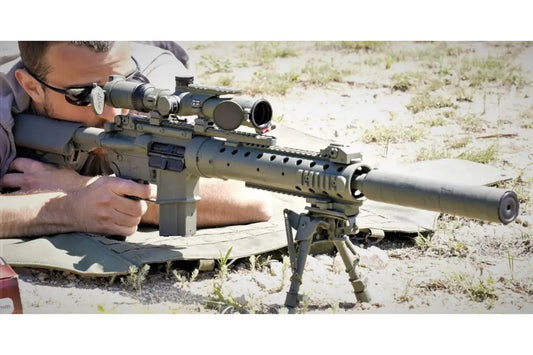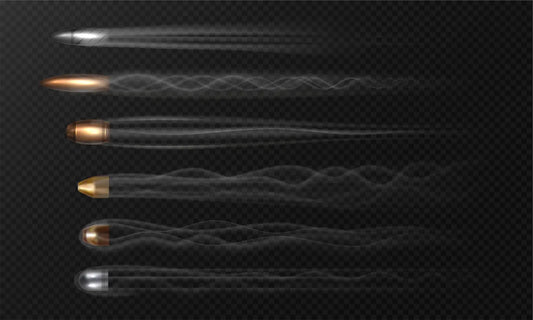
9 mm vs .380 ACP: The 2025 Concealed-Carry Caliber Showdown You Really Need to Read
Why the “mouse-gun” stigma is fading, why the micro-nine mania won’t quit, and how to decide which one lives on your belt.
1. 30-Second Caliber Cheat-Sheet
|
Metric |
9 mm Luger |
.380 ACP |
|
Typical defensive bullet weight |
115–147 gr |
90–100 gr |
|
Average muzzle velocity |
1,100–1,250 fps |
950–1,000 fps |
|
Typical muzzle energy |
350–450 ft-lbs |
~200 ft-lbs |
Take-away: 9 mm delivers roughly 75 % more energy, but both travel fast enough to meet FBI minimum penetration if you choose the right load.
2. Why Ballistics Aren’t the Whole Story
Trauma surgeon Dr. Sydney Vail reminds shooters that, “Having more rounds in your pistol’s magazine increases the potential for accurate shots.” He points out that the FBI’s return to 9 mm hinged on its balance of controllability and capacity—not raw power alone.
Chris Baker’s decade-long Lucky Gunner gel testing echoes that nuance: shot placement and penetration trump caliber in real gunfights. -LuckyGunner.com
3. Size, Weight & Everyday Comfort
|
Model |
Caliber |
OAL / Wt. (oz.) |
Capacity (flush) |
|
.380 |
5.17 in / 10.6 oz |
10 + 1 |
|
|
.380 |
5.94 in / 13.7 oz |
6 + 1 |
|
|
9 mm |
6.6 in / 21.5 oz |
17 + 1 |
|
|
9 mm |
6.6 in / 21 oz |
15 + 1 |
Micro-Nines have virtually erased the thickness gap; what’s left is mass. That extra ½-pound makes pocket carry untenable for many users in gym shorts or business casual, where the .380 still rules.
4. Recoil & Shootability—Not Just for “Recoil-Shy” Shooters
In side-by-side chronograph work for Concealed Carry Magazine, tester Joel T. Nadler noted he “did not detect a big difference in felt recoil from the .380s to the 9 mms” once pistol weight equalized.
But physics is physics: a 9 mm’s slide cycles faster and snaps harder. Shooters with limited grip strength, arthritis, or nerve issues often achieve 30 % faster hit times on 5-yard drills when stepping down to .380 ACP, especially in the feather-weight LCP MAX and Glock 42.
5. Capacity & Reload Economics
9 mm wins the magazine war (17 -round factory options now fit in a one-inch-wide P365-XMacro). Ammo prices tell a similar tale—bulk 115 gr FMJ hovers around $0.28/rd versus $0.50/rd for quality .380, so you’ll practice twice as much for the same money.
6. Terminal Performance in 2025
- Federal HST 124 gr +P 9 mm: 14.5 in penetration, 0.60 in expansion out of a 3.1-in barrel.
- Federal HST Micro 99 gr .380: 12.1 in penetration, 0.52 in expansion from a 2.8-in barrel.
Both meet the FBI 12-18 in penetration yardstick. The difference is margin for error through denim, arms, or intermediate barriers—areas where 9 mm keeps performing when .380 starts to limp.
7. Real-World Gunfights & Expert Eyes
Active Self Protection founder John Correia, after dissecting 40,000 surveillance videos, advises: “Carry the highest-capacity firearm you can reasonably conceal; people miss under stress far more than they imagine.”
That meshes with SIG’s media chief Joel Harris, who notes 9 mm’s dominance in LE circles stems from exactly that blend of capacity, controllability and wounding consistency.
8. Top-Shelf Pistols to Put on Your Short List
Micro/Midsize 9 mm (Easier to Shoot, Harder to Hide)
- SIG P365-XMacro Comp – 17 + 1, integral compensator tames flip.
- Springfield Hellcat Pro OSP – 15 + 1, optics-ready, generous grip texture.
- S&W Shield Plus 4-in – 13 + 1, flat-face trigger, under $500.
- Walther PDP-F 3.5 in – redesigned for smaller hands with superb trigger.
Deep-Conceal .380 (Easier to Carry, Harder to Master)
- Ruger LCP MAX – 10 + 1 in a sub-11-ounce frame; real sights at last.
- Glock 42 – unmatched reliability, Glock 19-style controls.
- SIG P238 SAS – 1911-style single-action finesse, night sights included.
- S&W Bodyguard 380 – integral laser still popular with ankle-carry crowd.
9. Ammunition Picks That Actually Work
|
Caliber |
Load |
Why It Made the Cut |
|
9 mm |
FBI-proven, uniform expansion |
|
|
9 mm |
Bonded core, barrier-blind performance |
|
|
.380 |
Only .380 load to expand and penetrate >12″ consistently |
|
|
.380 |
Flex-Tip avoids clogging, feeds in tiny pistols |
10. Cost of Ownership & Training Reality Check
- Gun cost parity: The Ruger LCP MAX street-price is ~$420; the Shield Plus 9 mm hovers at $449—a wash.
- Ammo & range time: One thousand rounds of 9 mm FMJ cost roughly $280; the same volume of .380 costs ~$500. If you shoot a modest 100 rds/month, that’s a $264 annual premium for .380 ACP—money better spent on a quality red-dot or defensive class.
- Maintenance: Sub-compact .380s beat recoil springs to death sooner. Expect to swap springs every 2,000–3,000 rounds, versus 5,000+ in most micro-nines.
11. Carry Logic in Plain English
|
If you… |
Lean toward… |
|
Dress light, pocket-carry daily, or have wrist/hand injuries |
.380 ACP |
|
Want maximum fight-stopping potential in a still-tiny gun |
9 mm |
|
Shoot fewer than 200 practice rounds a year |
9 mm (cheaper to train) |
|
Already own a reliable .380 and can’t upgrade soon |
Keep it—with premium ammo |
12. Bottom Line
Both rounds save lives every year. The 9 mm gives you more forgiveness—more capacity, deeper holes, better barrier penetration—but only if you’ll carry a slightly larger gun and put in the reps. The .380 remains unbeatable for “always-on-you” convenience when clothing or physical limitations rule out heavier hardware.
Choose the platform you’ll really carry, feed it proven defensive ammo, and confirm reliability with at least 200 rounds of ball and 50 rounds of your carry load before it earns a spot on your hip.
Ready to put your decision in the cart?
► Click here to browse in-stock 9 mm & .380 ACP pistols, ammo and holsters at Guns.com.




